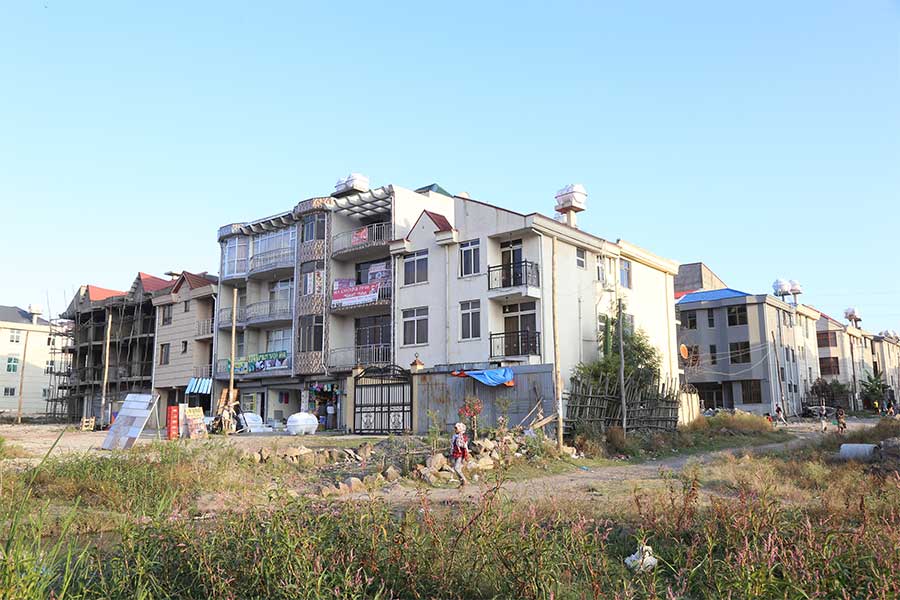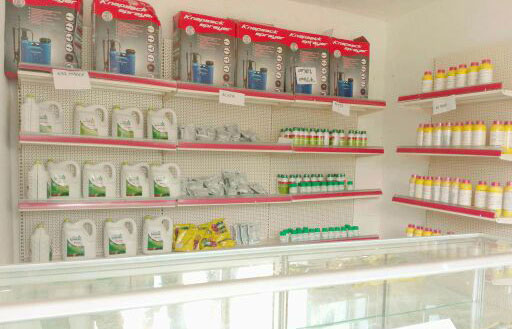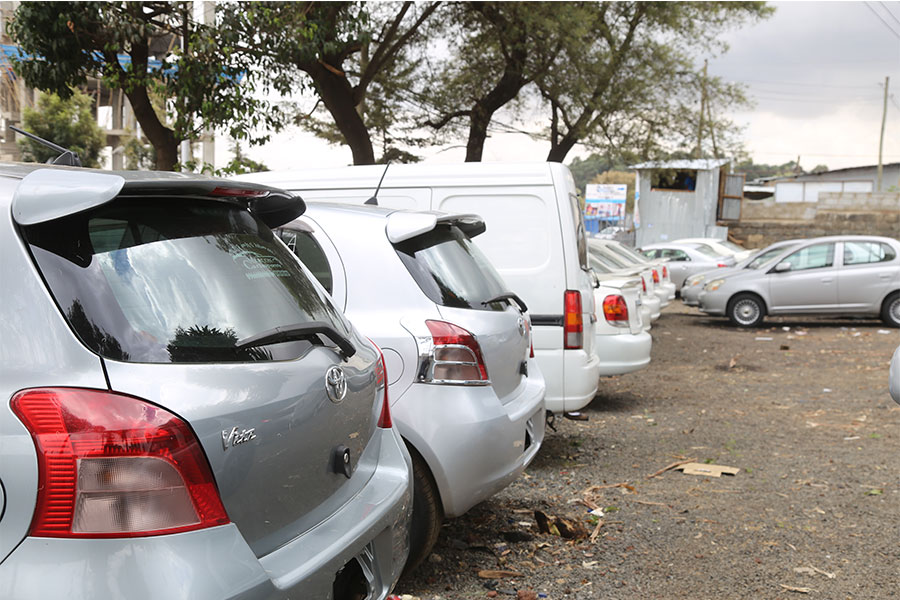
Commentaries | Feb 08,2020
Dagnachew Aschalew stands forlorn outside his butchery on the main thoroughfare in Adisu Gebeya, in Gulele District. Staring at his shuttered business last Thursday, September 26, 2019, Dagnachew recalls how two weeks prior, he received a warning from the Addis Abeba Trade & Industry Bureau. A day later the butchery was closed by city officials for failing to renew his trade license.
“Even though we tried to pay the tax and renew the license, the Bureau told us the tax audit was not complete,” said Dagnachew. “We can’t pay our tax unless we complete the audit, but the Bureau didn’t understand us."
Dagnachew’s is not the only business the Bureau closed two weeks ago. To control the continuously increasing price of goods and claiming to stabilise the market, the Bureau took measures against some businesses accusing them of contributing to inflation, while it also took measures on businesses like Dagnachew because of license issues.
The Bureau, after investigating 5,783 commercial enterprises, closed 691 businesses and issued warnings to 2,402. The closed businesses include bakeries, butcheries, construction materials shops and mills.
“A lot of my customers are coming to the butchery and leaving after they see that it is closed, and I'm forced to pay my employees even though the butchery is not working,” says Dagnachew.
The Bureau also closed 88 shops, which were found selling vegetables and fruits without receipts or were using forged receipts.
“The Bureau conducted research to understand the root cause of the continuously rising inflation in August,” said Habtamu Tilaye, an official at the Trade Inspection Regulatory Directorate. “Research shows that there are long and unnecessary trade chains, and we decided to cut these chains.”
Aschalew Butchery was closed by city officials for failing to renew its trade license in Adisu Gebeya.
Besides this, to prevent the contraband trade, a task force was formed by the city's Trade & Industry Bureau, Addis Ababa Police Commission, Revenue Authority and Attorney Bureau.
The task force arrested eight brokers and impounded 52 Isuzu trucks last week around Mercato for allegedly selling teffillegally.
In addition, the task force also seized 59 Isuzu trucks, which carried onions, avocados and oranges, in an operation that lasted for three hours on September 11, 2019.
“They're selling vegetables and fruit on the street, while selected areas at Atikilt Tera are the only designated area for sales of these items,” he adds.
We distributed the products to Cooperative Unions and Et-Fruit, and they are selling them at a lower price, Habtamu added.
The City Administration also claims that after it made the move there was a decrease in prices on some agricultural products and attributed the price decrease to its regulatory measures.
The price of onions, which had gone up to 30-34Br a kilogram in August now has come down to 10-18 Br a kilogram in the retail market and 10-16 Br at cooperative unions.
An alcohol distribution shop was recently closed by the Addis Abeba Trade & Industry Bureau near Adisu Gebeya.
“The closed businesses will get their licenses back if they fulfill the necessary criteria, but the brokers will be held legally liable,” said Habtamu.
In August inflation showed a 2.5 percentage point spike from the preceding month. The increase was mainly on food items, which rose by three percentage points, hitting 23pc on a year-over-year basis. Non-food inflation also rose by two percentage points to 12pc. The last highest inflation rate was registered in 2014, reaching as high as 22.2pc.
The Central Statistical Agency said the increase in the price of onions and garlic contributed to last month's rise in inflation.
"Increases in prices of the major cereals, especially on teff, barley, sorghum, and maize, have continued unabated," reads the report from the Agency.
Of the food items that have shown a drastic increase, onions were a clear outlier. They were sold for 30 to 35 Br a kilogram, doubling in price from the previous month.
Three and a half months ago, the macroeconomic committee chaired by Prime Minister Abiy formed a task force to explore the causes of rising inflation and came up with policy recommendations to keep the rate down.
Chaired by Getachew Adem, the deputy commissioner of the National Planning & Development Commission, the task force has six members and is composed of experts from the ministries of Trade & Industry, Finance and Agriculture, the National Planning & Development Commission, the National Bank of Ethiopia and the Central Statistical Agency.
The task force regularly follows up on the inflation rate and conducts research to trace the cause of rising inflation and forward recommendations to the macroeconomic committee.
Experts in the sector do not agree that the closing of the businesses will be a solution.
"Closing the shops will create a shortage of goods, and this situation will harden the inflation and increase the price of goods," said Atilaw Alemu (PhD), assistant professor of economics at Addis Abeba University.
"Rather they have to give support by making products available to stabilise the market," Atilaw said.
He argues that in order to minimise the inflation rate to a single-digit level, more needs to be done, and the government should amend the monetary policy and expand investment in addition to decreasing bank interest rates.
The butcher Dagnachew is doing his best, so that he will be able to get his trade license soon and reopen his shop.
“We are in the process of renewing the trade license, but it is a bureaucratic process, and I am afraid it could take a long time,” Dagnachew added.
PUBLISHED ON
Sep 28,2019 [ VOL
20 , NO
1013]

Commentaries | Feb 08,2020

Commentaries | Oct 14,2023

Fortune News | Jun 07,2020

Radar | Dec 07,2019

Commentaries | Oct 01,2022

Fortune News | Dec 14,2019

Fortune News | Jun 29,2019

Radar | Sep 21,2025

Radar | May 11,2019

Fortune News | Mar 09,2019

Dec 22 , 2024 . By TIZITA SHEWAFERAW
Charged with transforming colossal state-owned enterprises into modern and competitiv...

Aug 18 , 2024 . By AKSAH ITALO
Although predictable Yonas Zerihun's job in the ride-hailing service is not immune to...

Jul 28 , 2024 . By TIZITA SHEWAFERAW
Unhabitual, perhaps too many, Samuel Gebreyohannes, 38, used to occasionally enjoy a couple of beers at breakfast. However, he recently swit...

Jul 13 , 2024 . By AKSAH ITALO
Investors who rely on tractors, trucks, and field vehicles for commuting, transporting commodities, and f...

Oct 18 , 2025
The political establishment, notably the ruling party and its top brass, has become p...

Oct 11 , 2025
Ladislas Farago, a roving Associated Press (AP) correspondent, arrived in Ethiopia in...

Oct 4 , 2025
Eyob Tekalegn (PhD) had been in the Governor's chair for only weeks when, on Septembe...

Sep 27 , 2025
Four years into an experiment with “shock therapy” in education, the national moo...